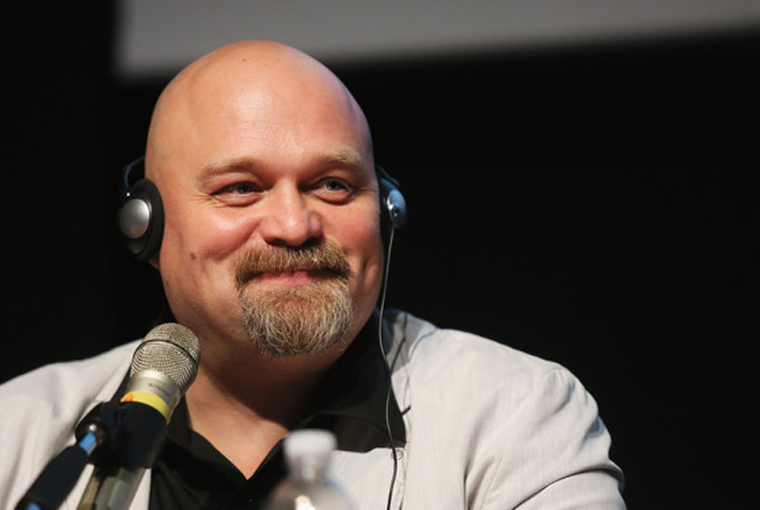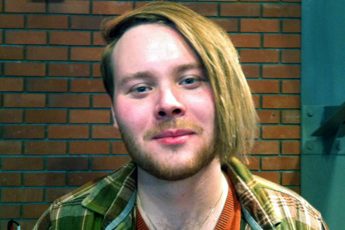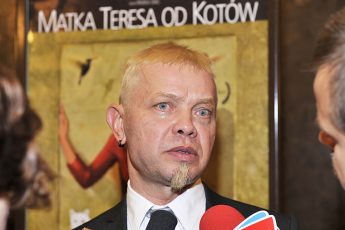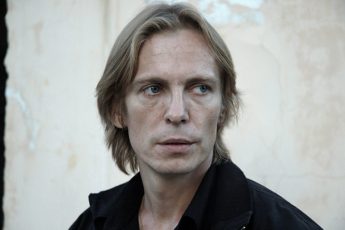
Moritz Pfeifer met Alexei Fedorchenko to speak to him about “Silent Souls”, his stylistic choices and comedy films in Russia.
Your previous film “Silent Souls” was based on real rituals. Are the myths in your new film real?
The stories are, of course, all made up, but they are based on the real beliefs, traditions, mythologies of the Volga Mari people, who live in the Northern Volga region and in the Urals. We used ceremonies and rites which exist now, rites which existed yesterday as well as rites which have long been forgotten, and returned them to present-day life, to a real Mari village. There was enough magic there even without us, but with us there was quite a bit more.
Why did you chose to return to the Volga-Finns after shooting “Silent Souls”?
This is a completely different people. Not completely—they also belong to the Finno-Ugric group. But Silent Souls was not a film about the traditions and ceremonies of the Merya people, it was a requiem about a farewell to a […] person simply using motifs of certain allusions to the themes of Merya culture, which now no longer exists at all. The script for Celestial Wives Of The Meadow Mari appeared before Silent Souls, in 2005 or 2006. We wanted to film it first, but couldn’t find the financing and I spent a long time learning about this culture, because filming a movie like this without being immersed in the culture… really, a serious study of the mythology of the Mari people was impossible. So this took several years. And first I filmed Shosho, also in Wiesbaden. Now this film could be called Celestial Husbands of the Meadow Mari; it’s a film about Mari men also filmed in the Mari language. As to why I became interested in this culture of the Urals, it’s because of my screenwriter Denis Osokin who is a professional philologist and folklorist and does professional work based on this material. He knows the languages, and he got me interested. So thanks to him I’ve made four or five films about Finno-Ugric peoples in various genres: a fairytale, a documentary, a comedy, a tragedy.
Why do the women’s names all start with the letter “O”?
Because it’s beautiful. The film is a calendar, an ornament, the film is about all the times of the year, all the female seasons from childhood to old age, a kind of wheel of life. The letter “O” looks like a wheel, looks like the sun, it’s a resonant symbol. But it’s also just beautiful.
The bawdiness in some scenes reminded me of Pasolini’s medieval trilogy. Were you inspired by the Italian director?
I don’t know what Pasolini used for inspiration in his own films. A long time ago, the films of Pasolini inspired me, but now I immerse myself in life. I have to live there. In order to know how people live there, I live for some time among them. I lived in Mari villages when I was filming Shosho and Celestial Wives. There’s nothing better than real life and the echo of yesterday’s life to inspire one to fairytales.
Do you think that there is a lack of comedy in Russian cinema?
No, I wouldn’t say that. Lots of comedies are being made. It’s quite a different matter that they are comedies of one weekend, one holiday. There are films that come out around New Year’s, around Women’s Day, they come out and are forgotten within two weekends. On television, they have comedy channels. There haven’t been serious comedies on the level of Daneliya and Ryazanov. Maybe life so far doesn’t have that kind of ironic mindset. I think they will appear soon.
Your films are all very different in style. Is there some basic principle that connects them?
Well, all films… [Fictional] films are fairytales, fairytales for adults, done in different genres. First on the Moon is done in the genre of an investigation documentary. The Railway is a fantastical road movie. Silent Souls is a road movie and a requiem. Celestial Wives is an erotic comedy. What connects them is, as one journalist recently said, “all your films are quests in search of lost love.” So I went through them in my head and that seems to be true, of both the [fictional] and documentary films. So evidently that is the connection. Right now I am working on another film, which will be different, not resembling what I’ve done up until now.
Thank you for the interview.




Leave a Comment